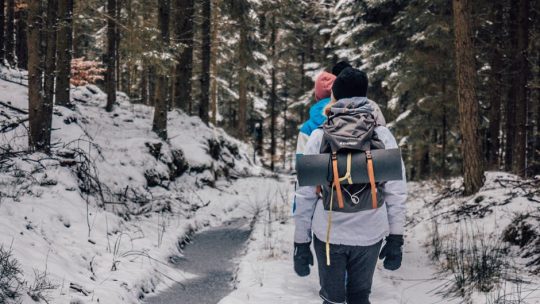For some people, the ideal summer vacation would be escaping the season’s heat. All that snow on your social media feeds and the chance to try out exciting activities like skiing is enough to make anyone want to get on that plane and fly off to a winter wonderland.
But more than just a gorgeous Instagram backdrop and an excuse to don flashy coats and layers, the freezing climate can be tough on your body. Leading hospital in the Philippines, Makati Medical Center helps us make sure we are fit and set to enjoy the cold weather.
Dr. Gabriel Gabriel M.D. of the Department of Emergency Medicine shares, “Too much cold can affect your body’s ability to fight off viruses and infections.” Single-digit or negative temperatures can increase some people’s risk of having a heart attack or stroke. So, if you’re traveling with children, seniors or anyone with a long-term health condition or disability, it’s important to keep their health in mind.
Bundle Up. There’s more to winterwear than just jackets. Don’t expect to travel light when you’re packing for your trip, especially when temperatures are expected to hit negative. Invest in items like Heat-tech innerwear for extra warmth without the bulk; hats, scarves, and gloves to protect our vulnerable body parts and windproof jackets, which eliminate the icy bite caused by the breeze better than any thick fabrics. Pay attention to the climate, too. Some clothes are best for dry climates, and some best for wetter ones. When it’s snowing, proper footwear is also important to avoid any slips and falls.
Exercise Moderately. As excited as you are to hit the ski slopes or take a long hike to see some snowy views, it’s important to consult your doctor first about how much activities you can do in the cold. “This is something that people with heart disease or high blood pressure should do before they go on their trip,” says Dr. Gabriel. “The cold exerts extra strain on the heart, because it’s working to keep our bodies warm.” Couple that with strenuous activities, and it could be a problem. But exercise is still important when done in the right doses. It burns energy and generates heat that can keep your body warm.
Eat Right. You might find that you’re eating a lot when you’re cold. That’s because energy from the food is used to keep your body warm. So, while in cooler climates, indulge in your favorites such as soup, stew, and hot chocolate. Make sure to wash it down with warm water, too. Drinking cold liquids may feel refreshing while you’re warm and toasty indoors, but it’ll make you cold once you step outside.
Monitor your Health. There are the common cold weather-related conditions that you should watch out for. Dr. Gabriel notes hypothermia, or abnormally low body temperatures. “Check on your companions for symptoms. Hypothermia can affect the brain, so the victim may not notice it on their own.” Asthmatics should also be careful, because dry, frigid air can exacerbate their condition.

Frostnip, which affects only the outer layers of skin, is common when skiing or snowboarding. It’s soft yellowish or white skin accompanied by a painful tingling or burning sensation. Frostbite will look pale grey or white with a waxy texture, and it can swell or blister. Dr. Gabriel suggests, “Use the warmth of your hand to bring a bit of life back to the area. Don’t rub unless you want a nasty raw rash!”
A vacation in a cool country to try out different experiences is always fun. Make sure you’re all prepared to fully enjoy a hassle-free trip with your friends or family.
For more information, please contact MakatiMed On-Call at +632.8888 999, email [email protected], or visit www.makatimed.net.ph.

